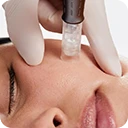
Acoustic Shockwave Therapy: A New Solution for Erectile Dysfunction
September 17, 2025
Facial Rejuvenation in Vancouver: Discover Super Natural Facials
October 1, 2025Understanding the Prevalence of Vitamin Deficiencies in Modern Lifestyles
In today’s fast-paced world, maintaining a balanced diet can be more challenging than ever. Despite increased awareness of healthy eating, studies show that vitamin deficiencies remain a widespread concern, especially in developed countries like the United States. Factors such as the prevalence of highly processed foods, irregular meal times, and busy lifestyles often lead people to neglect the intake of nutrient-rich whole foods. As a result, essential vitamins and minerals can be lacking in many individuals’ daily diets.
Modern convenience foods, while quick and accessible, are frequently stripped of vital nutrients during processing. Combined with the tendency to skip meals or rely on takeout, these habits set the stage for chronic, albeit sometimes subtle, deficiencies. Unfortunately, many adults may not realize they are affected, as the symptoms often develop gradually and can easily be mistaken for the effects of stress, aging, or a hectic lifestyle.
Acknowledging how widespread these deficiencies are is the first step towards making informed decisions about health and wellness. Proactively considering vitamin intake—whether through dietary changes or supplementation—can play a pivotal role in maintaining overall well-being and preventing more serious health issues down the line.
Recognizing the Health Risks of Neglected Vitamin Intake
Neglecting proper vitamin intake doesn’t just affect your energy or mood—it can have significant, lasting consequences on your health. Approximately half of American adults live with chronic diseases that are often linked to or exacerbated by poor nutrition. When the body doesn’t receive adequate vitamins, it struggles to perform essential functions, leading over time to the development of preventable conditions such as heart disease, type 2 diabetes, and certain forms of cancer.
The impact of vitamin deficiencies isn’t limited to long-term disease risk. On a day-to-day basis, insufficient vitamin levels can manifest as persistent fatigue, difficulty concentrating, and greater susceptibility to infections. These symptoms, though sometimes mild at first, may become increasingly disruptive, affecting work performance, personal relationships, and overall quality of life.
Furthermore, the body’s ability to heal and recover from illness or injury can be compromised. For example, a deficiency in vitamin C can impair wound healing, while a lack of vitamin D affects bone health and immune response. Recognizing these risks underscores the importance of prioritizing adequate nutrition and, when necessary, seeking targeted solutions to address deficiencies before they evolve into more serious health challenges.
How Vitamin Injections Work: Rapid Nutrient Delivery Explained
Vitamin injections represent a modern approach to addressing nutritional deficiencies by delivering essential nutrients directly into the bloodstream. Unlike oral supplements, which must pass through the digestive system, intramuscular or intravenous vitamin injections provide immediate absorption, ensuring that a higher percentage of the nutrient is available for the body to use.
This method is particularly advantageous for individuals who have trouble absorbing vitamins through the gut, whether due to digestive disorders, certain medical conditions, or even aging-related changes. By bypassing the digestive tract, vitamin injections offer a reliable route for achieving optimal nutrient levels, especially for those who have not responded well to traditional supplementation.
One of the most appealing aspects of vitamin injections is the speed at which their effects can be felt. Many recipients report a noticeable boost in energy and well-being within minutes or hours of administration. This rapid response is due to the immediate increase in circulating vitamin levels, which supports cellular functions and physiological processes more efficiently than oral alternatives can.
For those looking for a fast and effective way to replenish deficiencies, particularly when symptoms are impacting daily life, vitamin injections offer a solution that is both practical and scientifically supported.
Signs You Might Benefit from Vitamin Injections: The Role of Energy and Daily Wellness
Feeling constantly tired or lacking the energy to get through the day isn’t just a normal part of a busy lifestyle—it could be your body’s way of signaling a nutrient deficiency. Vitamins such as B12, D, and C play crucial roles in converting food into energy, supporting metabolic processes, and maintaining a healthy immune system. When these vitamins are in short supply, it becomes increasingly difficult for the body to keep up with daily demands.
Common warning signs include persistent fatigue, trouble focusing, frequent infections, and even subtle mood changes. If you find yourself struggling to complete routine tasks, feeling run-down despite adequate rest, or experiencing unexplained dips in motivation, it might be time to evaluate your vitamin status.
Recognizing these symptoms early and addressing them through appropriate interventions—such as dietary adjustments, oral supplements, or vitamin injections—can help restore your energy levels and improve your sense of well-being. Consulting with a healthcare provider is essential for identifying the root cause of these symptoms and determining the most effective strategy to optimize your vitamin levels and restore balance to your daily life.
Evaluating Your Need: Steps to Determine Suitability for Vitamin Injections
Before considering vitamin injections, it’s important to take a structured approach to determine if they are right for you. The process typically begins with a professional assessment, where a healthcare provider reviews your medical history, current symptoms, and lifestyle factors. This comprehensive evaluation helps to identify potential underlying deficiencies and ensures that any intervention is both safe and effective.
In many cases, laboratory testing is recommended to measure specific vitamin levels in the blood. These results provide valuable insight into which nutrients may be lacking and help tailor a personalized supplementation plan. For some individuals, correcting deficiencies through dietary improvements or oral supplements may be sufficient, while others—especially those with absorption issues—may benefit more from injections.
Professional guidance is essential when considering vitamin injections, as excessive or inappropriate use can lead to unwanted side effects or imbalances. By working closely with a qualified provider, you can ensure that your unique health needs are addressed and that any intervention supports your long-term wellness goals. This collaborative approach lays the foundation for safe, effective, and sustainable improvements in your nutritional status.
Supporting Long-Term Health with Optimal Vitamin Levels
Achieving and maintaining optimal vitamin levels is a cornerstone of lifelong health. Adequate intake of essential nutrients supports everything from immune function and energy production to skin health and mental clarity. While vitamin injections offer a valuable solution for addressing deficiencies and providing a rapid boost, they should be viewed as part of a broader commitment to wellness.
Balanced nutrition—emphasizing whole foods, fruits, vegetables, lean proteins, and healthy fats—remains the foundation of preventive health. Incorporating regular physical activity, managing stress, and prioritizing sleep further enhance the body’s ability to absorb and utilize vital nutrients. Periodic reassessment of your nutritional status, whether through routine check-ups or lab tests, helps to ensure that you continue to meet your body’s needs.
For individuals with specific health concerns or increased nutrient requirements, vitamin injections can serve as an effective adjunct to a healthy lifestyle. By taking proactive steps to manage your vitamin levels, you not only reduce the risk of chronic disease but also enhance your day-to-day vitality and overall quality of life. Approaching wellness with intention and awareness empowers you to look and feel your best, today and in the years to come.




































